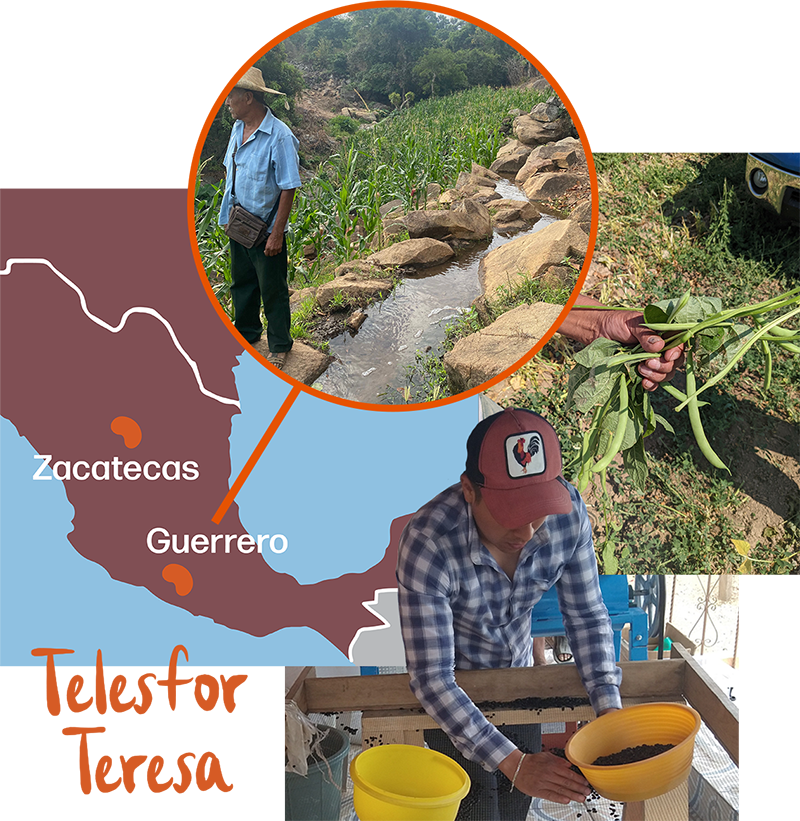Brought to you in collaboration with our friends at Tamoa
The origin story of beans begins with Mexico – which is why we’re thrilled to work with Tamoa to highlight lesser-known varieties and regional practices of small farms in Mexico. It's our third collaboration together and the most exciting yet.

Sourcing notes
Growing region: Guerrero, Mexico
Farm: Telesfor Teresa
Grown on the coastal hills of Guerrero, Chaparro has been preciously preserved for generations. The community of Huamuchapa is famous for these beans, and any local can easily identify them from the distinct flavor, fragrant aroma, and rich broth. Harvesting is a family affair, everyone goes to the hills together and feasts on gorditas and beans cooked on a campfire as a midday meal.
About Tamoa
Founded by Francisco Musi and Sofia Casarin, Tamoa was born out of curiosity and passion for their Mexican heritage and a desire to champion the country’s food culture and traditional farming practices. The couple is on a mission to sustain crops native to Mexico by serving as a bridge between the small-scale farmers that preserve native crops and the increasing number of kitchens across North America that value high-quality, responsibly sourced ingredients.
Through our partnership, Tamoa delighted to extend its mission by bringing these unique varieties to home kitchens in the US.


Our cooking guide dispels long-held myths and makes bean cooking easier and accessible for all.
get the guide


About Tamoa

Founded by Francisco Musi and Sofia Casarin, Tamoa was born out of curiosity and passion for their Mexican heritage and a desire to champion the country’s food culture and traditional farming practices. The couple is on a mission to sustain crops native to Mexico by serving as a bridge between the small-scale farmers that preserve native crops and the increasing number of kitchens across North America that value high-quality, responsibly sourced ingredients.
Through our partnership, Tamoa delighted to extend its mission by bringing these unique varieties to home kitchens in the US.

Meet us in the kitchen!
From weeknight to date night, quick & easy to low & slow, refreshing salad to comforting stew – we've got you covered.
browse recipesMeet us in the kitchen!

Browse our growing collection of our favorite recipes to enrich your bean palate.
browse recipes